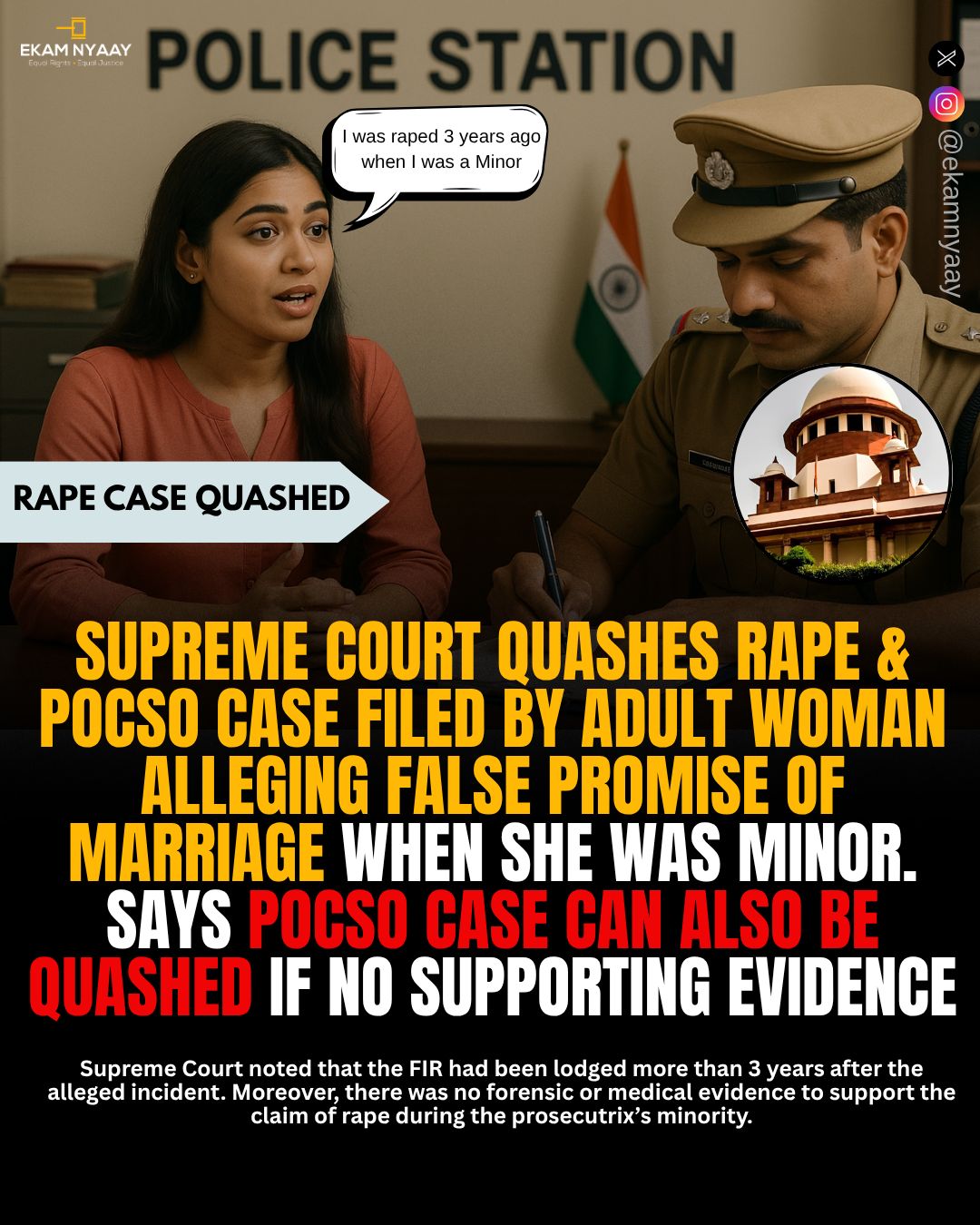
-
Supreme Court


SC: Quashes Wife's 498a FIR Filed in India after Foreign Courts Granted Husband Divorce and Child Custody. FIR by Wife Counterblast and Retaliatory.
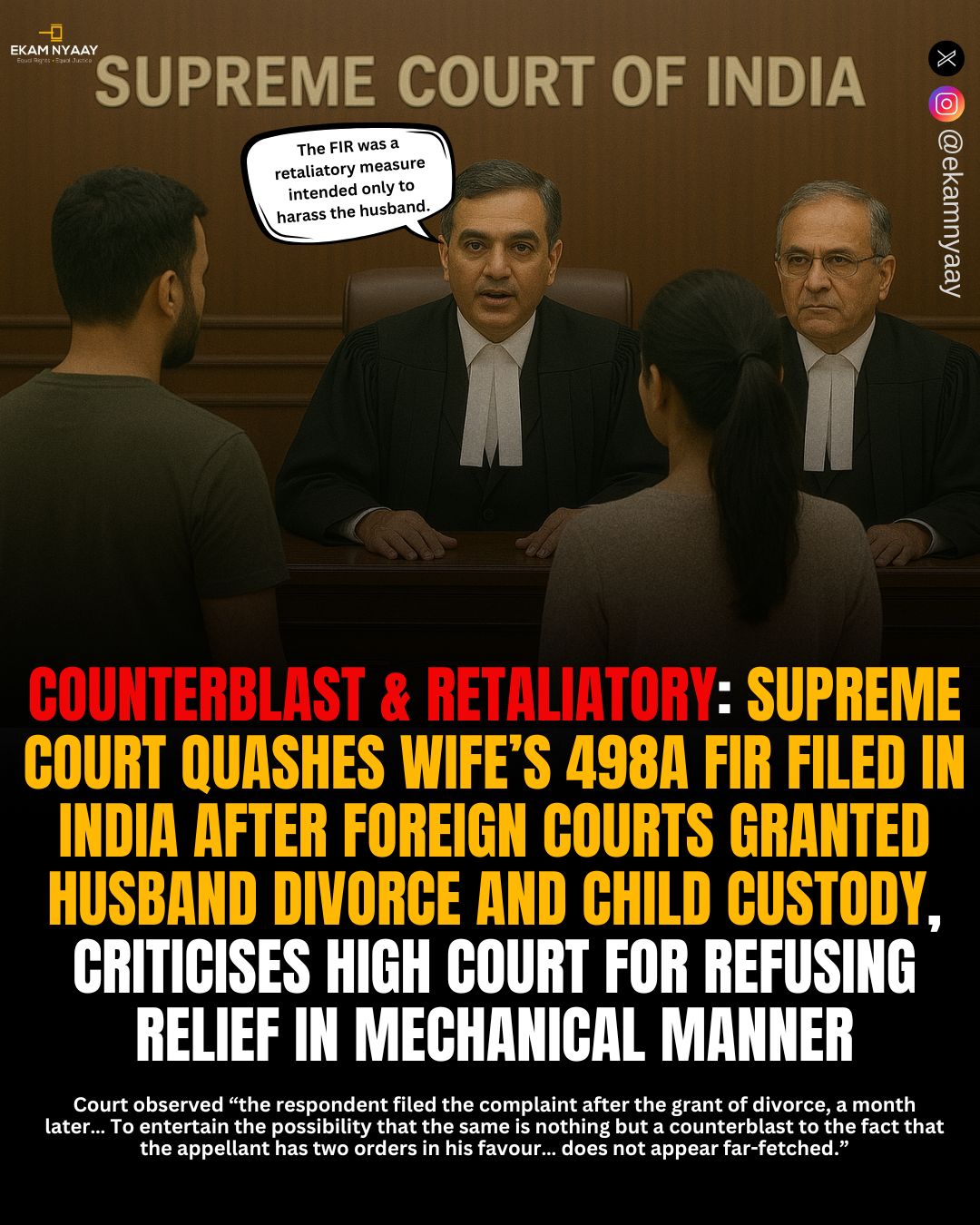
In Nitin Ahluwalia v. State of Punjab & Anr., Supreme Court quashed the FIR filed by the wife against her husband under Section 498A IPC. The Court observed that the High Court erred in mechanically dismissing the husband’s quashing petition under Section 482 CrPC without considering the background in which the FIR was lodged.
Court observed “the respondent filed the complaint after the grant of divorce, a month later… To entertain the possibility that the same is nothing but a counterblast to the fact that the appellant has two orders in his favour… does not appear far-fetched.”
The appellant (husband), an Australian citizen of Indian origin, married the respondent (wife), an Austrian citizen, in 2010. Their daughter was born in 2012. In June 2013, the respondent left the matrimonial home in Australia with the child and moved to Austria. Thereafter, multiple proceedings were initiated under The Hague Convention, 1980, and foreign courts, including those in Austria, directed the respondent to return the child to Australia, but she defied those orders.
In April 2016, the Federal Circuit Court of Australia granted divorce to the appellant on the ground of irretrievable breakdown of marriage. Just a month later, in May 2016, the respondent lodged a police complaint in Punjab alleging dowry harassment and cruelty during the marriage. On this basis, an FIR was registered on 07.12.2016 u/s 498A IPC at Women Police Station, SAS Nagar.
The appellant challenged the FIR before the Punjab & Haryana High Court, but his petition was dismissed on the ground that “the matter is at the very initial stage of investigation” and that it was “too premature a stage” to quash the FIR. The High Court emphasized that since allegations had been raised, investigation must proceed.
Before the Supreme Court, the appellant argued that the FIR was a retaliatory measure filed after losing custody and divorce cases abroad, and that it was an abuse of process. The respondent, on the other hand, denied retaliation and claimed that cruelty and child custody are distinct issues. She also pointed out that India is not a signatory to the Hague Convention.
The Supreme Court referred to CBI v. Aryan Singh and Rajeev Kourav v. Baisahab, reiterating that at the quashing stage, only the prima facie possibility of offence must be considered.
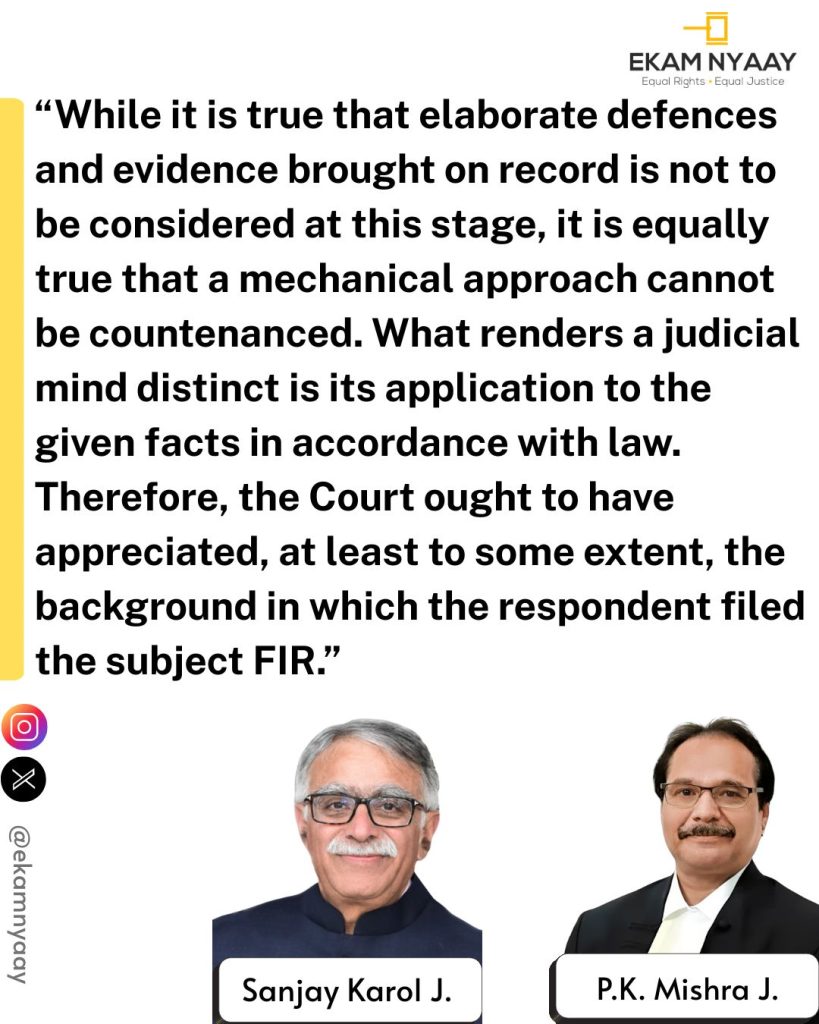
“While it is true that elaborate defences and evidence brought on record is not to be considered at this stage, it is equally true that a mechanical approach cannot be countenanced. What renders a judicial mind distinct is its application to the given facts in accordance with law. Therefore, the Court ought to have appreciated, at least to some extent, the background in which the respondent filed the subject FIR.”, Court observed.
Court also noted the timing of the FIR and found contradictions in the respondent’s conduct, particularly her failure to comply with Austrian court orders, and held that the FIR extended allegations of cruelty even beyond the period of marriage, which was untenable.
Relying on Digambar v. State of Maharashtra and the principles laid down in Bhajan Lal v. State of Haryana, Court concluded that the case fell within parameters where continuation of proceedings would amount to abuse of process.
Accordingly, SC set aside the Punjab & Haryana HC’s order and quashed the FIR filed by the wife.
More In this segment
-
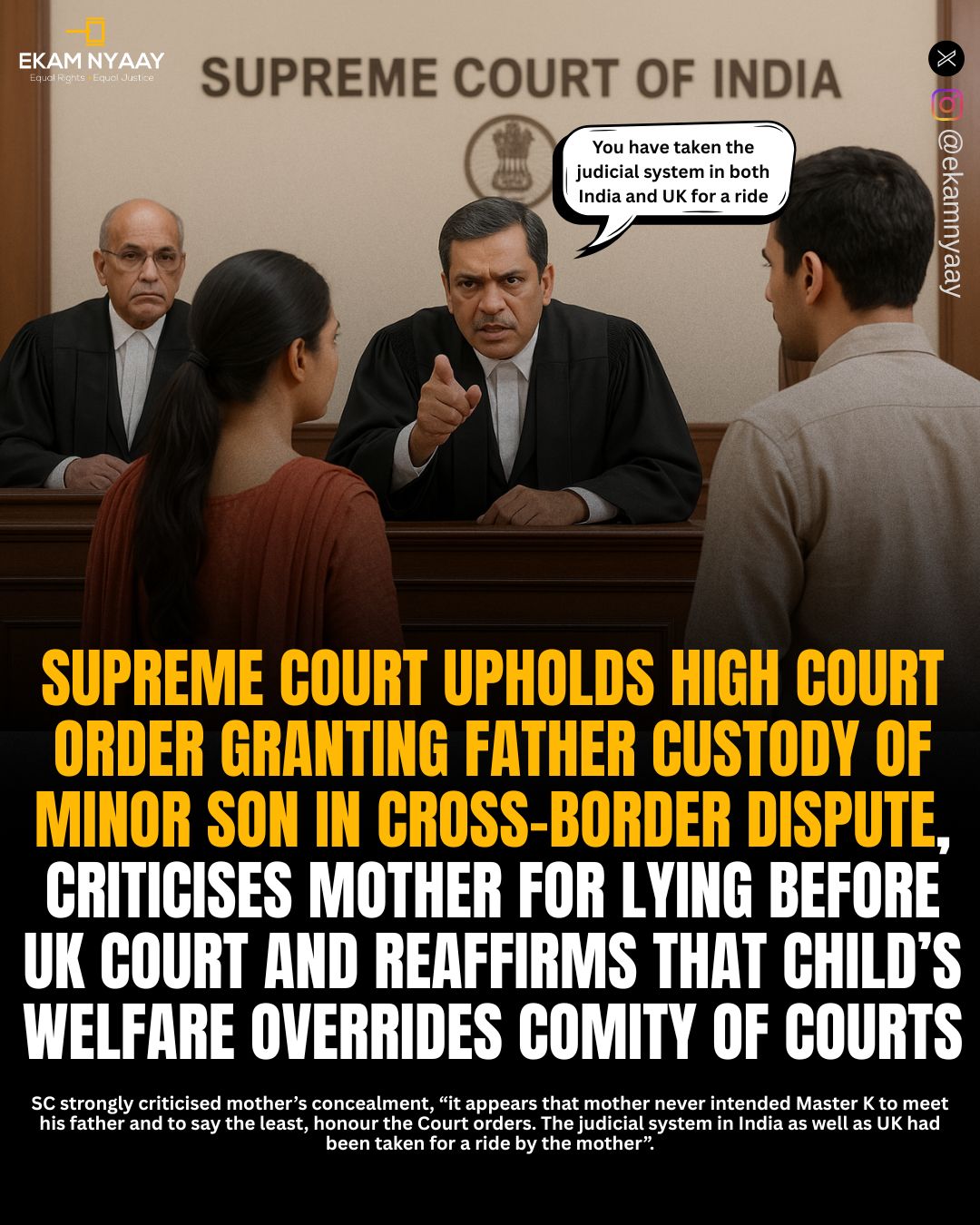
-
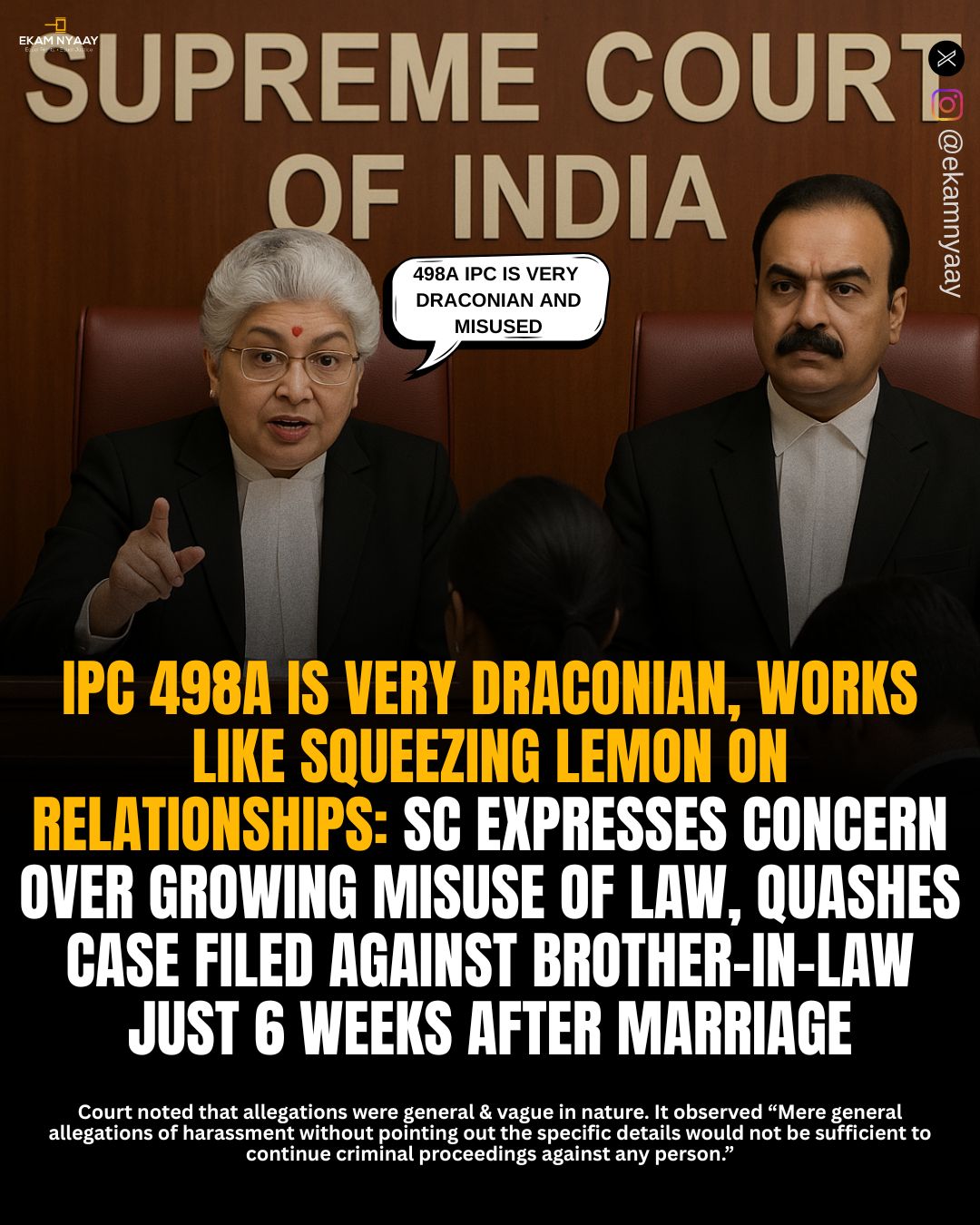
-

-
Supreme Court
- September 2025
SC – Consensual Sex Cannot be called Rape Retrospectively in cases of Failed Relatiosnships
-
-
